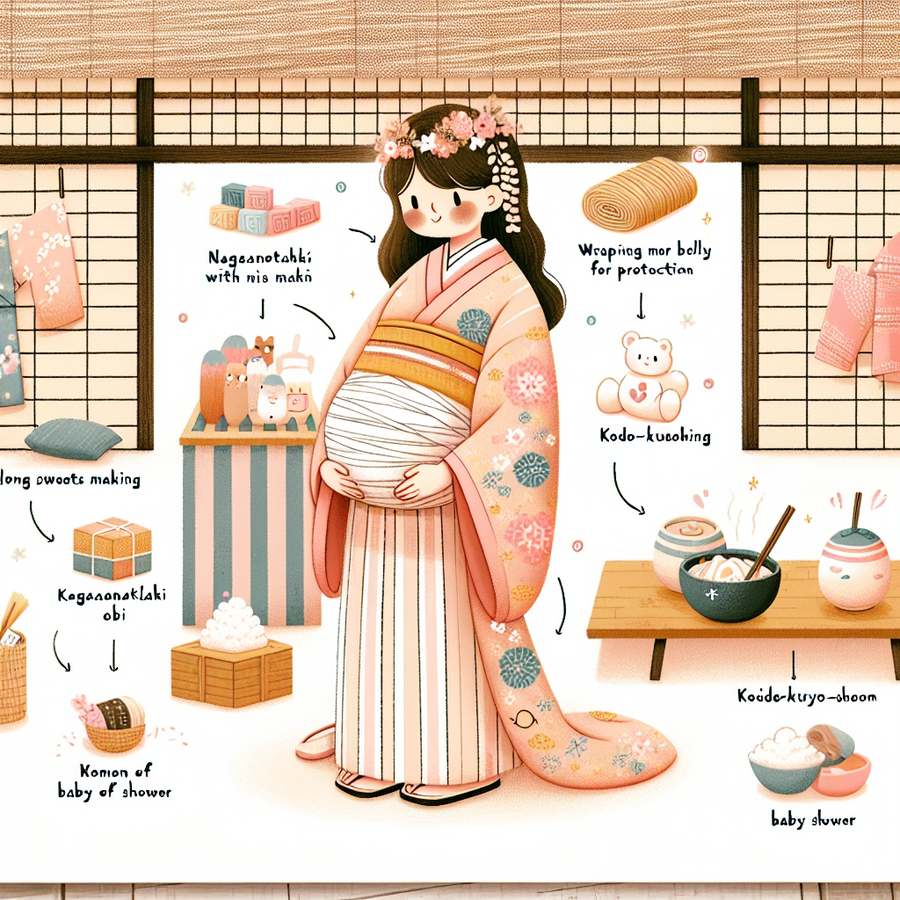Pregnancy customs and traditions in Japan are rich and varied, reflecting the country’s deep respect for life and family. As we explore these traditions, we’ll understand how they shape the experience of expectant mothers and their families, creating a supportive and celebratory environment from conception to birth.
Pregnancy Customs and Traditions in Japan: The Spiritual Journey Begins
In Japan, pregnancy is not just a medical condition but a spiritual journey that involves various rites and practices. The first significant tradition is the visit to a Shinto shrine after learning about the pregnancy. This visit, known as ‘Tamago Kuyo’, is crucial for praying for a safe delivery and healthy baby. It symbolizes the community and spiritual support that the expectant mother will receive throughout her pregnancy.
Another vital tradition is the ‘Obi-Iwai’, a celebration that takes place around the fifth month of pregnancy. During this time, the expectant mother wears a special belt called ‘obi’, which is believed to protect both the mother and the unborn child. This ceremony is a beautiful example of how pregnancy is celebrated and cherished in Japanese culture, surrounded by family and friends.
Nurturing the Bond: Diet and Health Practices
Diet and health are central to pregnancy customs in Japan, emphasizing the importance of balance and nutrition. Traditional beliefs hold that the mother’s diet can significantly influence the baby’s health and well-being. As such, a balanced diet rich in fresh, seasonal ingredients is encouraged. Foods like rice, fish, vegetables, and seaweed are staples, providing essential nutrients for both mother and baby.
Regular health check-ups and following a set of guidelines known as ‘Haha-to-Ko-no Kenko Techo’ (Mother and Child Health Handbook) are also integral parts of prenatal care in Japan. This handbook, given to every expectant mother, tracks the pregnancy’s progress, offering guidance on diet, health, and postnatal care, illustrating the country’s comprehensive approach to supporting pregnant women.
Celebrating Milestones: From Pregnancy to Birth
As the pregnancy progresses, several milestones are celebrated, marking the journey towards childbirth. One such tradition is the ‘Chu-gen’ and ‘Oseibo’, where gifts are exchanged between families to express gratitude and well-wishes for the baby’s arrival. These gifts often include items that wish health and longevity for the child, such as clothes, toys, and food.
Following the birth, the ‘Omiyamairi’ ceremony takes place about a month after the baby is born. During this ceremony, the newborn is taken to a Shinto shrine for the first time, offering thanks to the kami (spirits) for a safe delivery and praying for the child’s health and happiness. This ceremony is a poignant reminder of the cyclical nature of life and the community’s role in welcoming new members.
Understanding pregnancy customs and traditions in Japan offers a fascinating glimpse into how culture, health, and spirituality are woven into the fabric of family life. These customs not only provide support and guidance for expectant mothers but also celebrate the miracle of life from its earliest stages. For more insights into pregnancy and baby care, explore our articles on what to expect in week 1 of pregnancy, early pregnancy signs at 6 weeks, and what to pack in your hospital bag.













